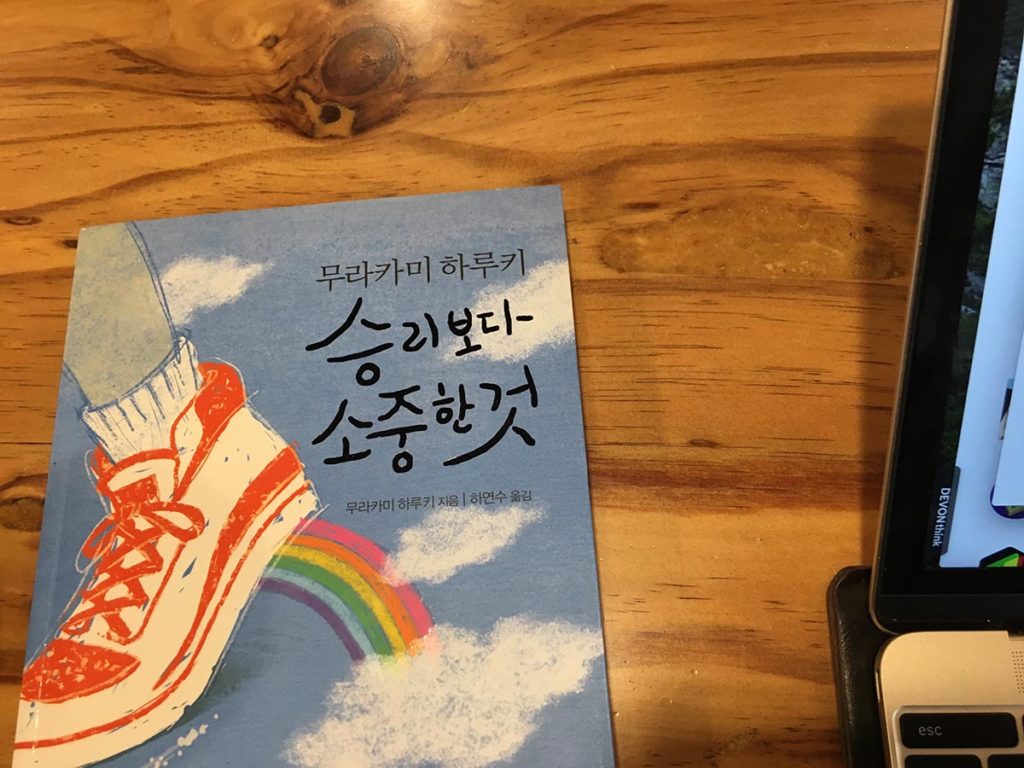
Recently, I started reading Haruki Murakami’s ‘Sydney!’ and stumbled upon another of his books, ‘More Precious Than Victory,’ at a nearby Aladdin used bookstore. Different title, but a quick peek inside revealed the table of contents matched ‘Sydney!’ exactly.
Sometimes, you come across books re-released with different covers and formats. Haruki’s books, perhaps because of their popularity, often get stitched together and introduced under entirely new titles. I wonder if this happens only in our country or if it’s a thing in Japan too.
Looking into the history of ‘More Precious Than Victory,’ it first appeared in Japan as Haruki’s Olympic travelogue titled ‘Sydney!’ in 2001. Seven years later, it was introduced domestically through Moonhak Soochup with the title changed to ‘More Precious Than Victory’ (translated by Hayunsoo), and then, eight years after that, re-released through Bichae as ‘Sydney!’ (translated by Kwon Namhee).
I lean towards keeping the original title; the reckless title changes by arrogant translators or editors feel almost criminal to me. (Of course, transcendent translations like ‘The Curious Case Of Benjamin Button’ are exceptions.)
Out of curiosity, I flipped through the pages. Although ‘Sydney!’ and its twin shared content, they felt oddly different in reading. Sometimes sentence lengths or paragraph structures differed, and there were even varied or omitted descriptions. 📚
When a famous translated book doesn’t read well, I often wonder if the original is like that too. Robin Cook’s medical novels had great stories and structure but felt elementary in writing, making them hard to endure. Sure, the author was a medical student, so the writing might lack finesse, but if the original was like that, no stellar plot could make it a bestseller. I haven’t read the original, so I can’t definitively blame the translation, though…
Given that Japanese and our language share similar syntax and vocabulary, you’d think translations wouldn’t vary much. Yet, translators, being human, often infuse their color into sentences or unconsciously choose their expressions or words. 🎨
Reading a bit of ‘More Precious Than Victory’ gave insight into its lackluster initial reception. True to Haruki’s style, the sentences were concise but lacked harmony. It felt like trying to eat rice with chopsticks made from a different grain. Additionally, frequent excessive summarization (replacing sentences with a single word, condensing two or three sentences into one) distorted the meaning. 🍚
That’s not to say ‘Sydney!’ was a stellar translation; neither was particularly engaging. ‘Sydney!’ did have more of Haruki’s vibe, but that’s thanks to Anzai Mizumaru’s illustrations mimicking Haruki’s essay illustrations rather than the writing itself.
Some might say I’m all talk without being able to translate myself, but by that logic, I’d have to quietly munch on salty pasta too. 🍝 I’ll continue to actively voice my dissatisfaction as a consumer when things don’t meet my expectations.
Leave a Reply